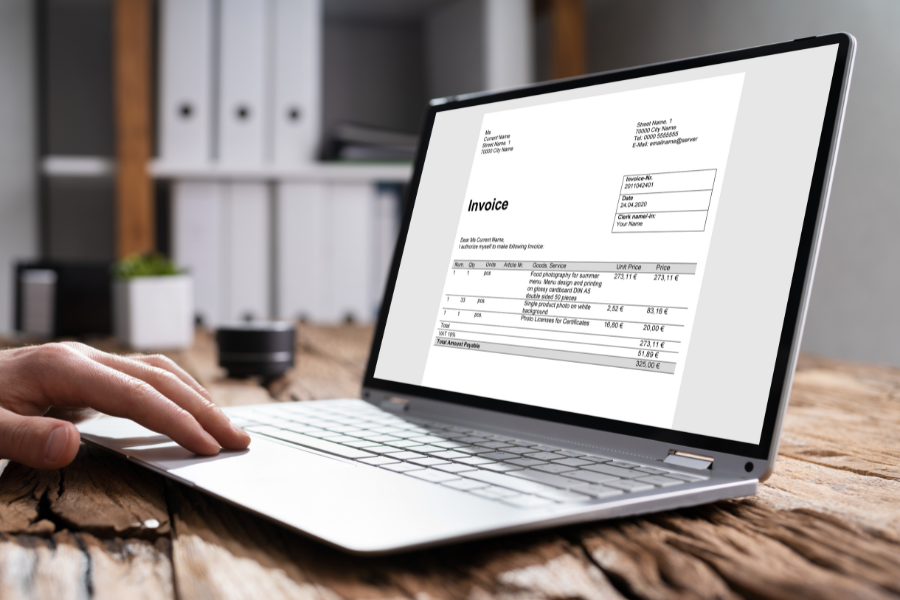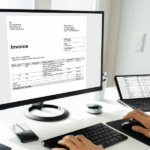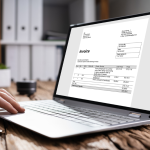In an increasingly interconnected global economy, businesses and individuals in Malaysia are more likely than ever to earn income from foreign sources. However, with the benefits of cross-border earnings come added responsibilities, particularly in the realm of taxation. Recognizing the need for greater transparency and efficiency, Malaysia has introduced mandatory e-Invoicing for foreign income, revolutionizing the way such earnings are documented and reported. This move is not just a regulatory formality—it’s a pivotal step towards aligning with global best practices in digital taxation.
E-Invoicing for foreign income is more than just a compliance requirement; it’s a tool that helps streamline financial processes, ensuring that taxpayers and the government have accurate, verifiable records. This system reduces the risk of errors, facilitates smoother audits, and ultimately fosters a culture of accountability. For businesses, it’s an opportunity to modernize operations and maintain seamless financial records. For individuals, it ensures clarity in tax obligations, avoiding unexpected penalties or disputes.
What is e-Invoicing for Foreign Income?
E-Invoicing for foreign income refers to the digital documentation of income received from sources outside Malaysia. It serves as an official record, providing proof of earnings for both taxpayers and regulatory authorities. The implementation of this system is a crucial step in enhancing transparency and accuracy in tax reporting, ensuring that all foreign income is properly accounted for. By making e-Invoicing mandatory, the Malaysian government aims to create a streamlined, efficient process that benefits both taxpayers and the authorities responsible for overseeing compliance.
This requirement applies to all individuals and businesses receiving foreign income, regardless of the amount. Whether you’re a freelancer working with international clients, a business exporting goods or services, or an investor earning dividends from overseas, you are obligated to issue an e-Invoice for every foreign income transaction. This documentation is vital during tax filings, as it provides the Inland Revenue Board of Malaysia (LHDN) with accurate records to verify your declarations.
Benefits of Compliance with e-Invoicing Rules
1. Improved Tax Transparency
E-Invoicing promotes transparency, ensuring all foreign income is accurately reported. This reduces the risk of discrepancies during audits and helps maintain trust between taxpayers and the tax authorities. It also provides a clear trail of transactions, making it easier to verify income sources.
2. Streamlined Financial Record-Keeping
Digital invoices simplify financial record-keeping by consolidating all relevant information in a standardized format. This makes it easier to retrieve documents for tax filings, audits, or internal reviews, significantly reducing administrative workload.
3. Enhanced Accuracy and Reduced Errors
Manual invoicing processes are prone to errors, such as incorrect data entry or missing fields. E-Invoicing systems, like Advintek’s, automate data validation and flag inconsistencies, ensuring that all required information is accurate and complete before submission.
4. Faster Processing and Payment Reconciliation
E-Invoices are processed more quickly than traditional paper invoices, reducing delays in payment reconciliation. This is particularly beneficial for businesses managing multiple foreign income streams, as it improves cash flow and facilitates smoother financial operations.
5. Easier Compliance with Global Tax Regulations
As more countries adopt digital tax reporting standards, compliance with e-Invoicing rules helps Malaysian taxpayers align with international best practices. This minimizes potential conflicts in cross-border transactions and fosters smoother collaboration with foreign partners and tax authorities.
6. Reduced Risk of Penalties and Legal Issues
Timely and accurate e-Invoicing ensures that taxpayers meet regulatory deadlines and requirements, significantly lowering the risk of penalties for non-compliance. It also provides a safeguard against legal disputes by maintaining a clear and verifiable record of income.
The Role of Income Recipients and Payors
Understanding the roles of both parties involved in the e-Invoicing process is essential for compliance.
Who is the Income Recipient?
The Income Recipient is the individual or business in Malaysia that receives income from a foreign source. They are responsible for issuing the e-Invoice to document this income. For example, if you’re a Malaysian freelancer working for an international client, you would be the Income Recipient.
Who is the Payor?
The Payor is the person or entity making the payment to the Income Recipient. They could be an individual or a business located outside Malaysia. In e-Invoicing, it is critical to capture accurate details about the Payor to ensure compliance.
The Workflow for Issuing e-Invoices
Steps for Income Recipients
The process begins with collecting all necessary data from the Payor. Once the required details are gathered, you can generate the e-Invoice using a compliant system like Advintek’s.
- Collect accurate Payor information.
- Input the data into the e-Invoice system.
- Validate the data to ensure compliance.
- Issue the e-Invoice before the deadline.
Using Advintek’s e-Invoice System
Advintek provides a streamlined platform that simplifies each of these steps. The system is user-friendly, guiding users through data entry, validation, and submission, ensuring compliance at every stage.
Frequently Asked Questions on e-Invoicing for Foreign Income
What happens if a Payor doesn’t provide a TIN?
If the Payor’s Tax Identification Number (TIN) is unavailable, you can use the placeholder value “EI00000000020” to fulfill the requirement. This ensures that the e-Invoice can still be generated without disrupting the compliance process.
Can I issue an e-Invoice after the compliance deadline?
While it’s best to issue e-Invoices within the stipulated timeframe, late issuance may be permitted under certain conditions. However, this could result in penalties or increased scrutiny during tax audits. It’s crucial to stay within deadlines to avoid potential complications.
How does Advintek’s system handle missing data fields?
Advintek’s platform is designed to assist users by providing real-time alerts and guidance when data fields are incomplete. The system helps fill gaps using placeholder values where applicable, ensuring compliance without unnecessary delays.
What should I do if the Payor provides incomplete address details?
If the Payor’s address details are incomplete or unavailable, you should input as much accurate information as possible. Advintek’s system allows you to use placeholders such as “NA” for non-essential fields, ensuring that the e-Invoice can still be issued while meeting minimum compliance requirements.
Is e-Invoicing required for small amounts of foreign income?
Yes, e-Invoicing is mandatory regardless of the amount of foreign income received. Even minor earnings from foreign sources must be documented through an e-Invoice to ensure complete transparency and compliance with Malaysian tax laws.
Can I revise an e-Invoice after it’s been issued?
Yes, revisions are possible if there are errors or changes in the transaction details. Advintek’s platform makes it easy to update or correct issued e-Invoices while maintaining compliance. However, any revisions should be done promptly to avoid discrepancies during tax reporting.
Conclusion
Navigating the complexities of e-Invoicing for foreign income can be challenging, but Advintek makes it easier. With a user-friendly interface, real-time validation, and dedicated support, Advintek ensures you stay compliant and focus on what matters most—growing your business. Leverage Advintek’s tools today and experience seamless compliance with Malaysia’s e-Invoicing requirements.









